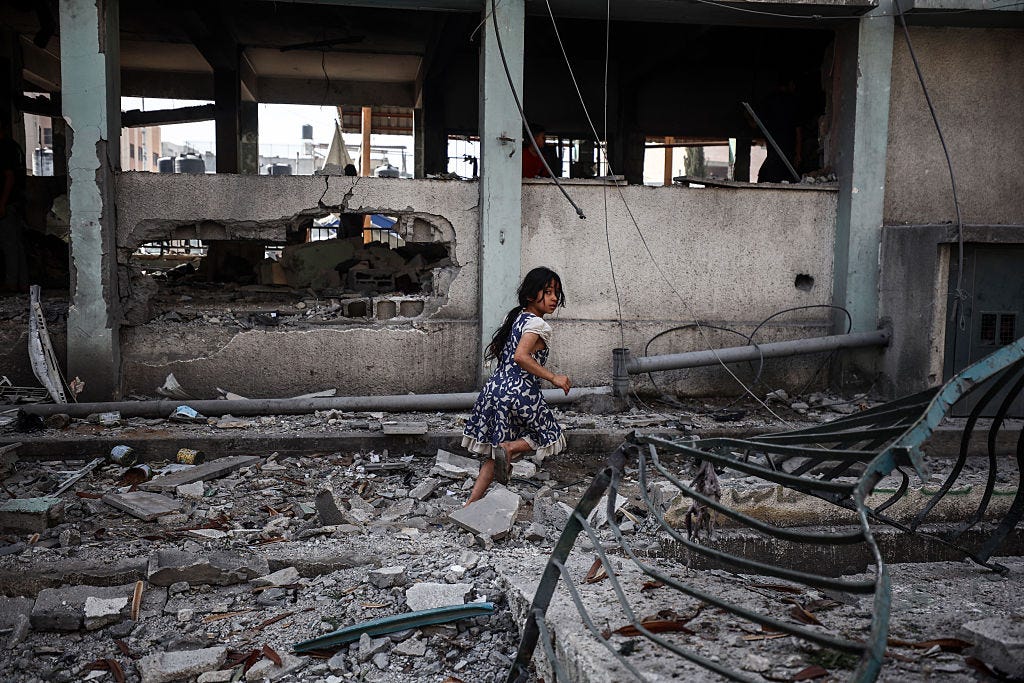Welcome back to The Ink Book Club, as we begin our discussion of Omar El Akkad’s One Day, Everyone Will Have Always Been Against This. This searing nonfiction debut by the author of American War has rightfully been compared to James Baldwin’s The Fire Next Time. We’ll meet on Substack Live this Wednesday, May 7, at 12:30 p.m. Eastern to talk about the book, and on Wednesday, June 18, we’ll gather live with Omar El Akkad, so make sure to add the date to your calendar.
The Book Club is open to all supporting subscribers of The Ink, so if you’d like to take part and haven’t yet signed up, we invite you to join us now.
During his boyhood in Egypt and Qatar, El Akkad looked to the West for his sentimental education. By the time he moved with his family to Canada, thanks to all the American culture he’d managed to imbibe (though many of those movies, books, music, etc. were heavily censored or technically banned), he was so steeped in Western media that he’d developed an American accent. Still, in Montreal, he confronted a profound sense of otherness. Then, as a young journalist, he was dispatched to many of the world’s hot spots, among them Afghanistan, Iraq, and Guantanamo. There he witnessed horrific examples of violence and injustice — many inflicted by the U.S. or its allies — but believed that, flawed as it was, Western liberalism was on the side of right.
All that changed for El Akkad after October 7, 2023, when Israel’s response to Hamas’s barbaric attack on its citizens became, as he writes, “a campaign of active genocide against the Palestinian people, one of the most openly, wantonly vicious campaigns in the nearly century-long occupation.” He’d long known there were “deep ugly cracks in the bedrock of this thing called ‘the free world.’ And yet I believed the cracks could be fixed, that the thing at the core, whatever it was, was salvageable. Until “the slaughter.” It was a disillusionment for him, an “ending.”
The book he’s written in reaction is discomfiting. Each sentence is a provocation — as powerful as a howl, but written with a poet’s precision. It’s not easy to sit with all the conflicting thoughts One Day prompts. El Akkad’s grief and rage spill into a broader consideration of “the moral component of history.” Is the most necessary component, he wonders, “simply a single question: When it mattered, who sided with justice and who sided with power?”
Below, we offer some questions to reflect on as you read. Enjoy the rest of the weekend, and we look forward to reading your comments.
This post was originally published on The.Ink.
